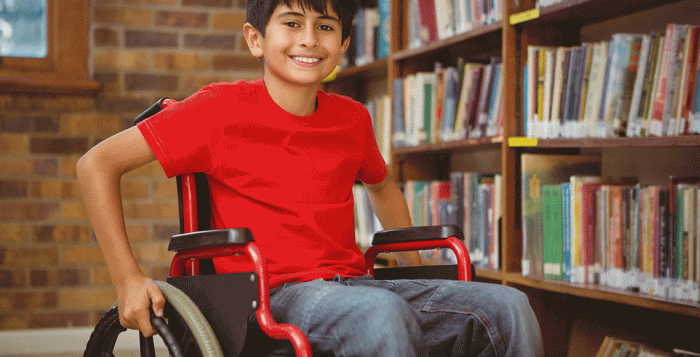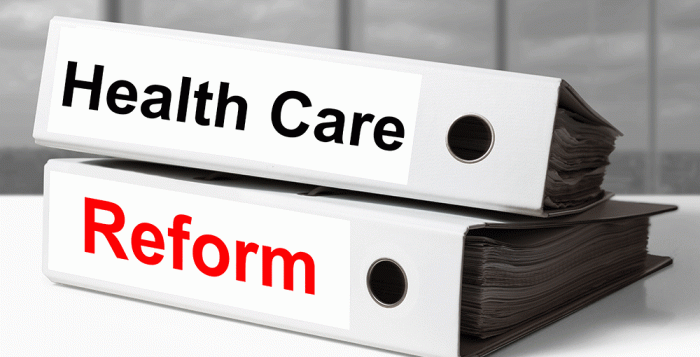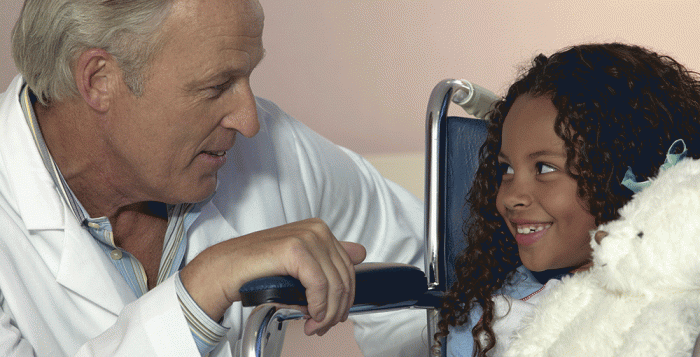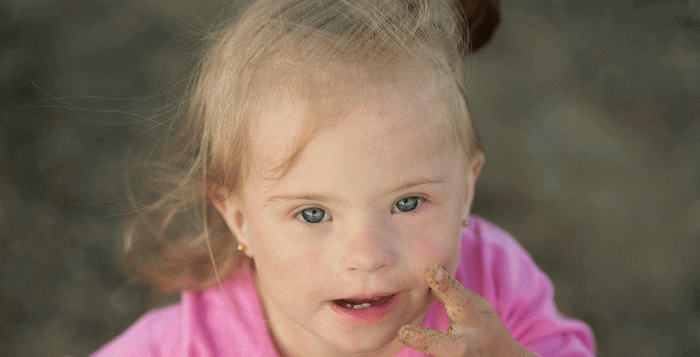On May 29, the Department of Human Services released a request for information (RFI) to help guide the department’s planning process for the release of a new procurement for the provision of managed care services for physical health. RCPA submitted comments and recommendations to the department in response to the RFI. Secretary Dallas has worked to be transparent during this process and has published a summary of some of the most frequently provided comments in the responses to the RFI. He has also identified some of the changes that the department is considering for the new HealthChoices physical health managed care procurement. This list is not intended to be final and merely reflects some of the ideas that are being considered at this time. Because many of the comments and related action plans communicated by Secretary Dallas address integrated physical and behavioral health care, data and information sharing, service system simplification, and other initiatives that have implications for RCPA members, this interim report is being shared at this time. Please submit any additional comments on the concepts included in this summary, or an area that is not listed in the document, via email by August 10.
Jim Sharp
BHSL Surveys CPSL Impact and Needs
The Bureau of Human Services Licensing (BHSL) has released a survey to assess licensed operators’ understanding of the changes that were recently made to the Child Protective Services Law (CPSL). BHSL will use this data to target areas where increased training and support are needed to assist facilities in maintaining regulatory compliance. This survey is optional and will take approximately 10 minutes to complete by the following programs and service providers:
- 55 Pa.Code Chapter 3800 residential treatment facilities and day treatment (not partial hospital)
- 55 Pa.Code Chapter 5310 host homes for children
- 55 Pa.Code Chapter 6400 community homes that serve children
- 55 Pa.Code Chapter 6500 family living homes that serve children
Information provided in this survey will not be used to issue regulatory violations and will be kept anonymous. RCPA encourages members to take the time to participate. The deadline for completion of the survey is August 14.
Consumer Guide to the Treatment of Concussion in Sports
The Pennsylvania Athletic Trainers’ Society, through a grant from the Pennsylvania Department of Health, brings you “A Consumer’s Guide to the Management and Care of Concussion in Sport.” This program gives a detailed look at the importance of proper identification and treatment of sport concussion, and the role of the licensed athletic trainer as part of the health care team to manage these injuries appropriately. The Safety in Youth Sports Act directs schools and athletic programs to create a health care team, and a concussion policy action plan, to aid in the management of concussions. This program will air on the Pennsylvania Cable Network (PCN) during the “Sunday Fusion” programming on the following dates and times:
- Sunday July 26, 3:30 pm
- Sunday August 2, 2:30 pm
- Sunday August 9, 5:30 pm
- Sunday August 16, 2:30 pm
- Sunday August 23, 4:00 pm
Beginning Monday, July 20 the program will be available on the PCN website.
American College of Physicians Calls for Better Integration
On June 30 the American College of Physicians issued a position paper calling for better integration of behavioral health into primary care; The Integration of Care for Mental Health, Substance Abuse and Other Behavioral Health Conditions into Primary Care: American College of Physicians Position Paper. It provides an environmental scan of the current state of conditions included in the concept of behavioral health, and examines the arguments for and barriers to increased integration into primary care. It also examines various approaches of integrated care delivery and offers a series of policy recommendations that are based on the reviewed information and evidence to inform the actions of the American College of Physicians and its members regarding advocacy, research, and practice. A summary of the paper is in today’s Annals of Internal Medicine online edition.
Law Clarifies and Streamlines CPSL
On July 1 Governor Wolf signed Act 15 (HB 1276) into law. The bill was drafted to “clarify and make more explicit provisions” about which employees and adult volunteers, who work or volunteer with children, must obtain criminal background check clearances and child abuse clearances. It was intended to clarify the new Child Protective Services Law (CPSL) and to address concerns expressed by numerous volunteer-based organizations. Some of the key changes to the CPSL made by HB 1276 include:
- Adds definitions of adult family member, direct volunteer contact, education enterprise, family child-care home, immediate vicinity, and matriculated student.
- Reworks the definition of program, activity, or service to further flesh out definition.
- Limits the employees, at institutions of higher learning, required to undergo background checks, while retaining required checks for adults who have direct contact with youth who remain enrolled in high school.
- Clarifies which adults will require background checks and need to be in the “vicinity” of the child during an internship, externship, work-study, co-op, or similar program.
- Extends to 60 months (vs. 36 months) the time frame by which employees and volunteers must have their background checks updated.
- Expands the portability of the checks.
- Exempts volunteers, who are also students, from the background checks under specific conditions (e.g., the student is enrolled in school, the student is volunteering for an event on school grounds, or the event is not for children who are part of a child-care service).
- Permanently waives the fees associated with volunteers completing state background checks.
- Includes a presumption of “good faith” for agencies screening employees and volunteers.
A very comprehensive analysis of HB 1276 with an analysis table has been produced by The Center for Children’s Justice and is available on their website.
MMCO on Integrating Primary Care in Behavioral Health
The Medicare-Medicaid Coordination Office (MMCO), in the Centers for Medicare & Medicaid Services (CMS), is dedicated to ensuring that beneficiaries enrolled in Medicare and Medicaid have access to seamless, high-quality health care, that includes the full range of covered services in both programs. MMCO recently shared an array of tools and resources on integrated health care. This office works with the Medicare and Medicaid programs, federal agencies, states, and other stakeholders, to align and coordinate benefits between the two programs effectively and efficiently, ultimately improving the way Medicare-Medicaid enrollees receive health care.
What is Integrating Primary Care Services into Behavioral Health Settings?
- Within the context of primary care and behavioral health care, full integration exists when all care providers work together to address the primary care and behavioral health needs of individuals in the same setting.
- There are several integration levels; some organizations may introduce elements of primary care into their practices, or decide to develop a fully integrated system without going through any of the other levels.
Why Integrate Primary Care Services into Behavioral Health Organizations?
- Organizations that move along the integration continuum may be able to improve the care they provide to their consumers while increasing the efficiency of care delivery.
- Organizations that adopt some of these strategies may also benefit from such increased efficiencies, which may translate into reduced health spending for specific target populations.
Related Resources
- Behavioral Health Integration Capacity Assessment Tool
- Approaches to Integrating Physical Health Services into Behavioral Health Organizations
- Workforce Development: Key Considerations for Engaging Staff in Organizational Integration Efforts
- Workforce Development: Key Considerations for Hiring and Retention in Integration Efforts
- Workforce Development: Key Considerations for Training and Orientation in Integration Efforts
2015 International PCIT Convention in Pittsburgh
Parent Child Interaction Therapy (PCIT) has grown rapidly among clinicians and early childhood mental health provider organizations across Pennsylvania. As previously announced, Pittsburgh will be the host city for the PCIT International Conference. This event will take place September 30 – October 2 at the Sheraton Station Square Hotel. The conference will bring PCIT professionals from around the world to share innovations, insights, and experiences as providers of PCIT. The event will also feature several keynote speakers, including Sheila Eyberg, Cheryl McNeil, and Mark Chaffin. A block of rooms has been reserved at the Sheraton Station Square hotel for individuals attending the conference. To learn more about the conference, visit the PCIT International Conference website.
DHS Medication Administration Training and Information
The Department of Human Services has announced the July training schedule and related information for the approved and required Medication Administration Training. Training will be available online and at various locations across the Commonwealth. Future classroom training sessions are being scheduled throughout the year; announcements will be released when finalized. Classroom training sites have limited capacity, and training candidates from agencies with no certified medication administration staff are required to complete the online course work before they are permitted to attend the classroom training.
Medication administration training is required for designated staff working in: adult training facilities, adult day services, personal care homes, assisted living residences, child residential and residential treatment and day treatment facilities, community homes for individuals with an intellectual disability, and intermediate care facilities. Questions about the information in the training document can be directed to (717) 221-1630 or email.
OMHSAS Webinar: Psychiatric Rehabilitation Supports for Transition Age Young Adults
The Office of Mental Health and Substance Abuse Services (OMHSAS) is developing a series of interactive webinars about innovative services and supports for transition age youth and young adults. These webinars will raise awareness of the needs of youth and young adults, highlight best practices, and promote dialogue about supports and services at the local, regional, and state levels. The first in this series of webinars will focus on psychiatric rehabilitation services and supports for transition age young adults. Presenters will include:
- Scott Heller, Pennsylvania Association of Psychiatric Rehabilitation Services
- Heidi Eastman, Dickinson Center, Inc.
- Angel Rogalinski, The ReDCo Group
The presentation and webcast will be held on Thursday, July 30, 1:00 – 4:00 pm. Registration is not required. In-person participation will be held at the Clothestree Building on the grounds of the Department of General Services Annex in Harrisburg.
Online via telephone and internet connection instructions:
1. Use this link
2. If requested, enter your name and email address
3. If a password is required, enter the meeting password: Doris##1
4. Click “Join”
To join the audio conference only:
To receive a call back, provide your phone number when you join the meeting, or call the number below and enter the access code.
Call-in toll-free number (US/Canada): 1-877-668-4493
Call-in toll number (US/Canada): 1-650-479-3208
Meeting Number: 642 324 254. Meeting Password: Doris##1
For additional information, please contact OMHSAS Transition Specialist Doris Arena.
BHSL Draft 3800 Compliance Guide
The Department of Human Services Bureau of Human Services Licensing (BHSL) has released a draft Regulatory Compliance Guide (RCG) for Chapter 3800, relating to child residential and day treatment facilities. The RCG provides guidance about how the Department of Human Services will interpret and apply the chapter’s regulatory requirements during licensing inspections and investigations.
BHSL is inviting the Rehabilitation and Community Providers Association to work with members to review and comment on this draft guide. Please review the draft document and send your comments, suggestion and recommendations to Connell O’Brien. RCPA will collect provider input and share that information with the leadership of BHSL. Comments are due to RCPA by July 10 for submission to BHSL by July 17. The leadership of BHSL has communicated their clear interest in provider input and plans to take all comments into consideration prior to issuing a final RCG later this summer.
















